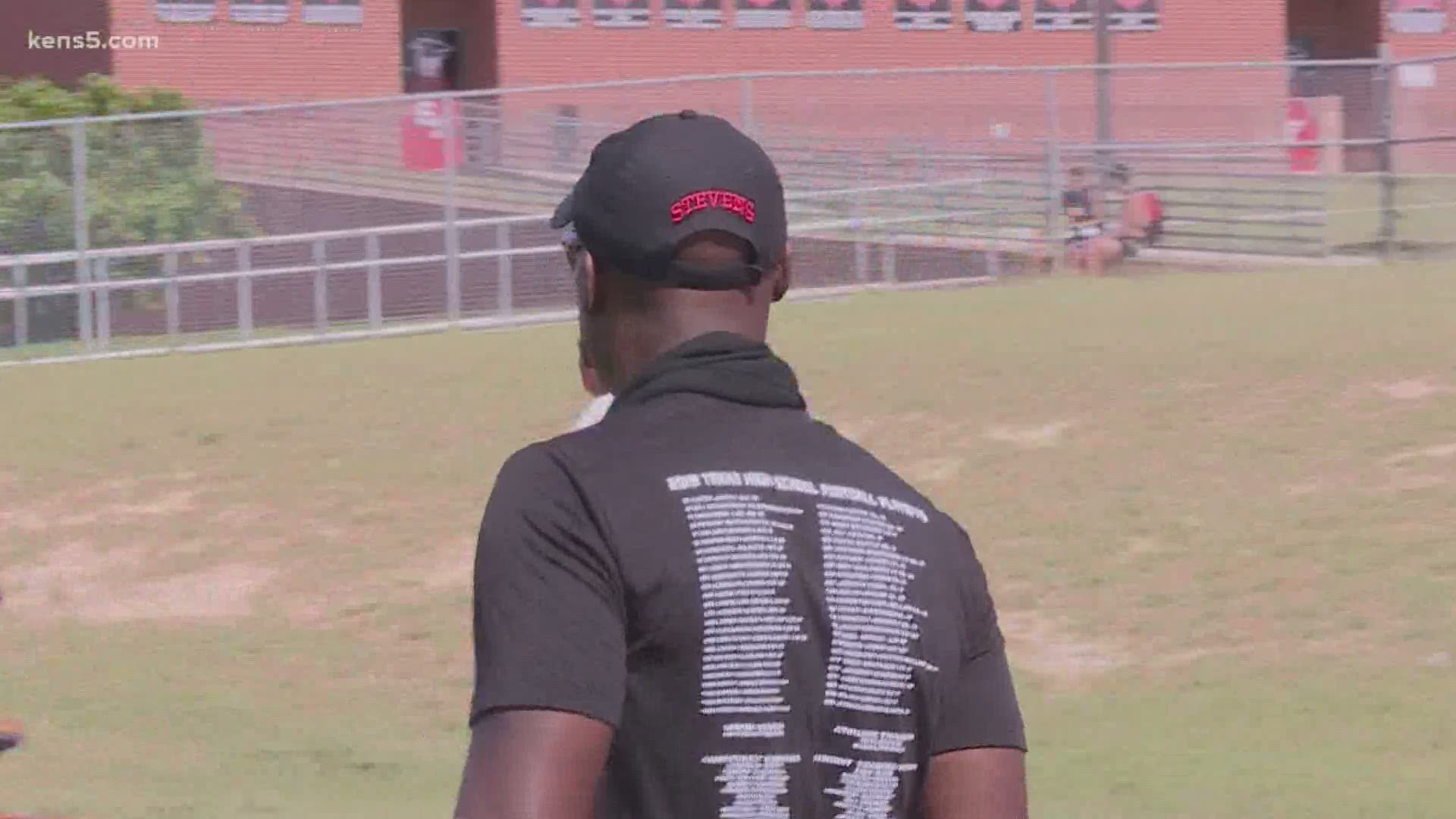SAN ANTONIO — Note: This is the third in a seven-part series of conversations with Black San Antonio-area high school coaches and their wives about race in America, the impact of local protests nationwide and what they expect going forward.
Part 1, about the impact of recent events on their own lives, can be seen here. Part 2, about the use of racial slurs by white people, can be viewed here.
This part of the conversation focuses on growing up Black in America.
What is it like to grow up Black in America?
Judson Rockets Head coach Rodney Williams: "It has its moments. I felt guilty sometimes about dating (my wife) because I didn’t want to put her in the situations that I’ve been in. You walk in and people look at you differently, and they don’t even know who you are, and they’re like, 'Nope, don’t like him.'
"Sometimes I felt that her being with me put her in that situation, and I didn’t like that."
Memorial Head coach Kemmie Lewis: "We didn’t go play in, we called it the white side of town. It was not what we were supposed to do. I don’t look to be oppressed. I’m going to do what I’m supposed to do in terms of a Black man in America, which is to work to be the best citizen that I can be. Be a role model for my students. Be a role model for the daughter that I have, and let her know that we do matter, and that I matter – I matter to my kids – and, once again, that we all matter."
Brackenridge Eagles Head coach Willie Hall: "The people around me, I’m just thinking about the people around me. Thinking about my elders before me, and what is coming in the future. I have sons and a daughter that are gonna be living after I’m long gone."
Stevens Falcons Head coach Anthony Boykin: "In my case, there is a continual process of telling myself over and over again that you have to work harder, and that you have to be better, and that you can’t give up. Those are things that, being a Black man, are unique to our experience, that we have to overcome on a continual basis, because there are not consistent messages confirming who we are."
Melanie Boykin: "He always felt like he had to (do) more, and that was something I didn’t understand in the beginning when he first started coaching. I’ve learned to accept that as the years have gone on."
Williams: "I’ve got a family in Wisconsin right now that I call mom and dad. They had no idea what Flatonia was, and they are two white people, and they treat me like I am their son because they got to know me. They don’t judge me for what I look like. They judge me for who I am, and how I treated them."
Watch our seven-part series - Local Coaches on Race in America:
- 'Now is our time in history where we have an opportunity to make a change' | Local coaches on race in America, Part 1
- 'I don’t think there is any Black man in America who has not experienced that' | Local coaches on race in America, Part 2
- 'I’m going to do what I’m supposed to do in terms of (being) a Black man in America' | Local coaches on race in America, Part 3
- 'When you know yourself, you can rise above anything' | Local coaches on race in America, Part 4
- 'It is gonna take all of us' | Local coaches on race in America, Part 5
- 'There’s a glass ceiling that has been there for years' | Local coaches on race in America, Part 6
- ‘The only way you can get over some of the stereotypes is to talk’ | Local coaches on race in America, Part 7

